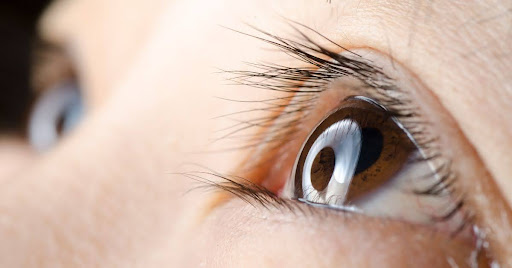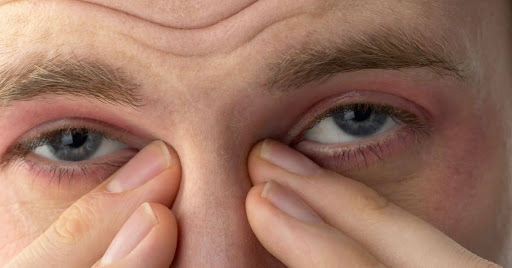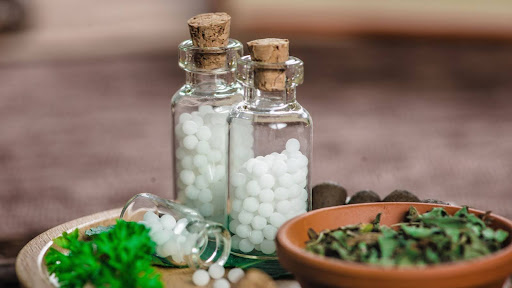Watery Eyes: Causes, Symptoms, and Simple Home Remedies to Stop Teary Eyes
3 min read
By DocGenie , Published on - 29 April 2025
Watery eyes are a common condition that can affect people of all ages. If you've been wondering, “why are my eyes watery all the time?” or “how to stop teary eyes at home,” you're not alone. While tears are essential for keeping our eyes healthy and lubricated, excessive tearing or watery eyes can signal an underlying issue. In this article, we explore what causes watery eyes, how to stop watery eyes naturally, and the most effective home remedies for watery eyes.
What Are Watery Eyes and Why Do They Happen?
Watery eyes, or epiphora, occur when there’s an overflow of tears either due to overproduction or poor tear drainage. Tears normally drain into the small openings in the corners of your eyelids, but when this process is disrupted, it leads to constant tearing.
Common Reasons Why Your Eyes Are Watery
 There are many causes behind watery eyes. Here are the most common ones:
There are many causes behind watery eyes. Here are the most common ones:- Allergies
- Dust, pollen, pet dander, and pollution are typical allergens that irritate the eyes and lead to excessive tearing.
- Dry Eyes
- Ironically, dry eyes are one of the major reasons why eyes become watery. The eyes overcompensate for dryness by producing more tears.
- Eye Infections
- Conjunctivitis (pink eye), blepharitis, or any mild eye infection can cause inflammation, redness, and watery discharge.
- Foreign Bodies or Irritants
- A speck of dust, an eyelash, smoke, or harsh chemicals can trigger immediate reflex tearing.
- Blocked Tear Ducts
- If the tear drainage system is blocked, the tears can't flow out properly and spill out instead.
- Eyelid Issues
- Eyelid problems like entropion (inward-turning eyelid) or ectropion (outward-turning eyelid) affect the normal tear distribution and drainage.
- Prolonged Screen Time
- Reduced blinking while using devices can dry out the eyes, prompting them to water excessively.
Watery Eyes Symptoms to Watch Out For
 Knowing what symptoms to observe helps in early management. Here are signs you may be dealing with watery eyes:
Knowing what symptoms to observe helps in early management. Here are signs you may be dealing with watery eyes:- Constant tear overflow
- Redness and irritation
- Itchy or burning sensation
- Blurry vision due to excessive moisture
- Sensitivity to light
- Crusting around the eyelids in case of infection
- Feeling of something stuck in the eye
How to Stop Watery Eyes: Simple Home Remedies
If you're looking for home remedies for watery eyes, these natural treatments may offer relief:
- Cold Compress
- Soothes irritated and itchy eyes
- Reduces inflammation and watery discharge
- Warm Compress for Blocked Tear Ducts
- Promotes drainage by loosening blockages
- Rose Water Rinse
- Mild and refreshing for irritated eyes
- Lubricating Eye Drops
- Artificial tears help treat dryness, a common cause of watery eyes
- Cucumber Slices
- Cool and hydrating
- Follow the 20-20-20 Rule
- Every 20 minutes, look at something 20 feet away for 20 seconds to prevent digital eye strain.
- Avoid Allergens
- Use air purifiers - if possible, keep windows closed during high pollen days, and clean bedsheets frequently.
- Stay Hydrated
- Drink 7–8 glasses of water a day at a minimum, to keep your body and eyes hydrated.
Best Foods to Support Eye Health
Adding the following nutrients to your diet can prevent dryness and excessive tearing- Vitamin A: Carrots, sweet potatoes, spinach
- Omega-3s: Walnuts, flaxseeds, and fatty fish
- Vitamin C & E: Citrus fruits, almonds, sunflower seeds
- Zinc: Whole grains, dairy, and legumes
When to See a Doctor
While most watery eye issues can be managed at home, consult a doctor if you experience:- Persistent or worsening symptoms
- Pain or redness in the eyes
- Sensitivity to light that doesn't improve
- Pus or thick discharge
- Vision problems
You may need further treatment for underlying conditions like infections, blocked ducts, or eyelid disorders.



